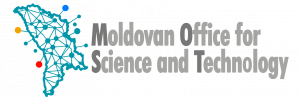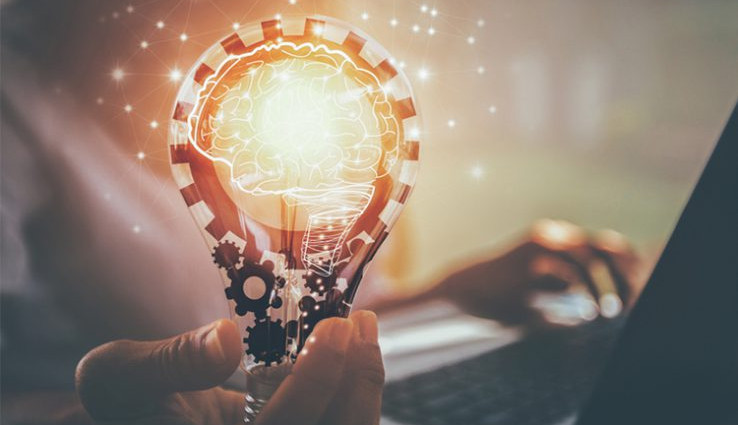POCOVIDSCREEN, one of the winning teams of the EUvsVirus hackathon, is giving a great example of successful international collaboration in the fight against COVID-19.
During the past months, a series of hackathons have emerged all over the world to come up with solutions in the fight against COVID-19. From 24 to 26 April, the European Commission, led by the European Innovation Council and in collaboration with the EU member states, hosted a Pan-European EUvsVirus Hackathon to connect innovators, society and investors across Europe in order to develop innovative solutions for COVID-19 related challenges. The goal was to deploy the best solutions in a very quick manner to have an immediate impact on meeting the challenges of the COVID-19 crisis.
The EUvsVirus Hackathon was a mission-driven initiative created to fight the Covid-19 crisis and simultaneously it triggered new cross-European collaboration and partnerships. The EUvsVirus Hackathon covered the entire European continent including Switzerland. More than 12’000 participants registered to the hackathon, which was structured around challenges in relation to COVID-19: Health and Life, Business Continuity, Remote Working and Education, Social and Political Cohesion, Digital Finance and others. One of the winning teams in the category Health & Life (sub-category: Cheap rapid tests), is POCOVIDSCREEN, a team consisting of members from France, Germany, the Netherlands, Spain and Switzerland. The collaboration brought together a medical geneticist, a paediatrician, a deep learning and drug discovery specialist, a medical biophysics and data specialist, an economic data scientist and an actuary data scientist. Their goal was to provide a new artificial intelligence (AI) based diagnosis tool to screen for COVID-19 in an affordable, precise and fast way with ultrasound image analysis.
The team members working on POCOVIDSCREEN first met during the CodevsCovid19 Hackathon, which is an initiative under the patronage of the Swiss Federal Department of Economic Affairs, Education and Research (EAER) and the Federal Department of Home Affairs (FDHA). Manuel Cossio, the Spanish medical geneticist of the team, explained, “The only thing we had in common is that we wanted to help and find a solution”. His colleague, Gabriel Brändle, a medical doctor from Geneva, elaborated on the team dynamics of this fruitful collaboration, “We all came together from different backgrounds and different countries. Our group was much more than just a collaboration, whilst working on the project, we shared our experience on life in quarantine and supported each other, it was really heart-warming”. Manuel Cossio argued that one of the advantages of collaborating in research and innovation across borders during the Covid-19 crisis is that it allows taking into account the differences between the countries with respect to Covid-19 directed strategies, infection trends and challenges. These differences were considered when the project was developed to come-up with a universal solution.
Testing has proven to be a key factor to prevent the spreading of COVID-19, therefore the solution that POCOVIDSCREEN provides, is a very relevant contribution. Manuel Cossio, explained that “the key novelty of our project is to make use of the cheapness and accessibility of AI and ultrasound”. The focus was put on point-of-care ultrasound (POCUS) images rather than CT scans or X-rays as it is a cost-effective and non-invasive method, which is available in almost any medical facility. There are no high hurdles to using the POCUS images, as it only requires a hand-held ultrasound device and a stable internet connection. With the prototype that POCOVIDSCREEN developed, they could identify COVID-19 cases with a 91% recall and 88% precision. Gabriel Brändle clarified that it is important to use the potential of both AI and ultrasound, and take into consideration the positive impact it could have on the health sector. In this project, AI is used safely and ethically as it serves only as an assistance and is supervised by a doctor.
As one of the winning teams in the EUvsVirus Hackathon, POCOVIDSCREEN was invited to the subsequent Matchathon, which was organised from 22 to 25 May by the European Innovation Council (EIC). To ensure follow-up, the jurors of the hackathon selected 117 finalists to participate in the Matchathon, where teams were matched with investors and corporates, among others, to bring their innovative solutions to production. The EUvsVirus Matchathon took place online on the new EIC COVID-19 Challenge Platform. The POCOVIDSCREEN team enjoyed their experience with the Matchathon and said that it was very useful in helping them to identify their weaknesses. Their mentor helped them to strengthen the business side of the project, where their team was lacking knowledge.
The most concrete challenge the team is facing now, is financing the project and finding a way to fund a clinical trial. They also must collect enough data in a standardised manner, so that their solution can be replicated and tested in other hospitals to check the reliability of the algorithm behind the AI. The team is planning to further invest in their collaboration and continue to participate in hackathons. The core of this project is what Julie Goulet, currently a visiting researcher at the Technical University of Munich, described as “creating a solution that is accessible to anyone and reflects our core values”. It remains therefore crucial for the team to find a partner who is willing to support their solution, but also believes in their project and its core values.
It is still early to evaluate whether the EUvsVirus Hackathon and Matchathon will directly result in a product or service on the market, but it is evidently a step into the right direction and it created a platform for international collaboration in research and innovation.

